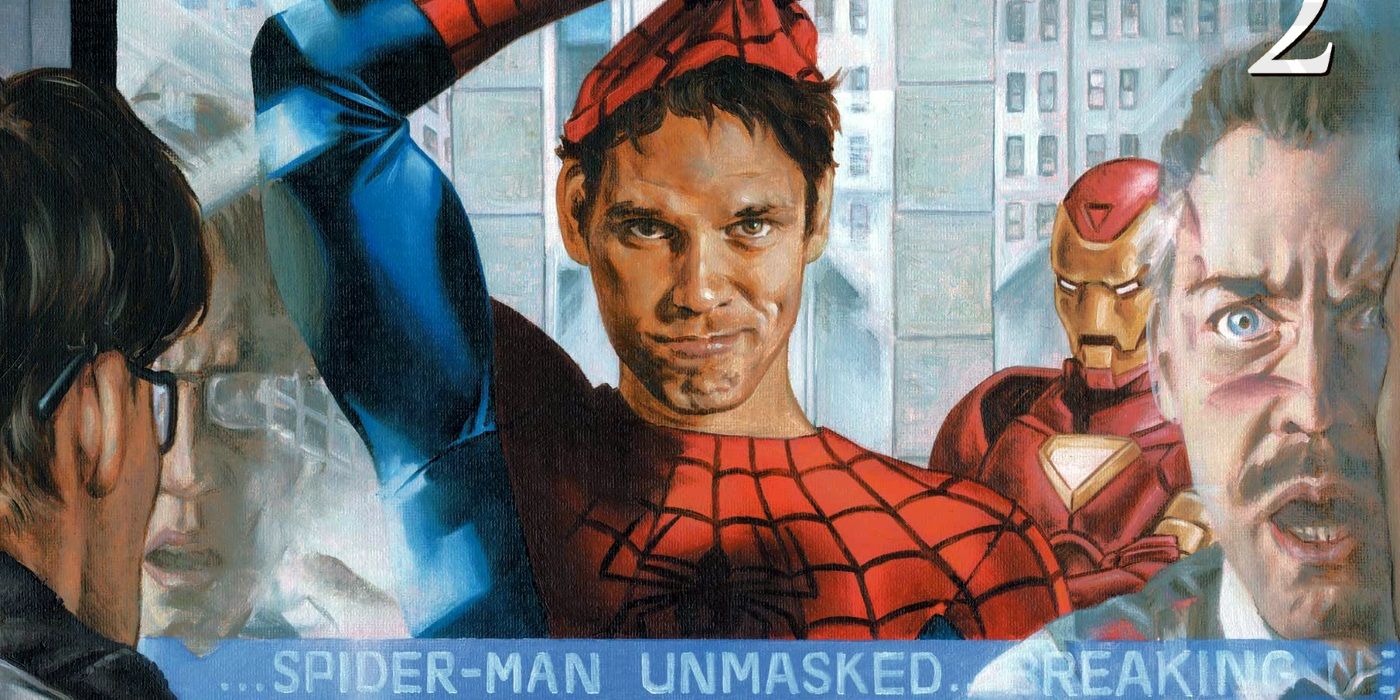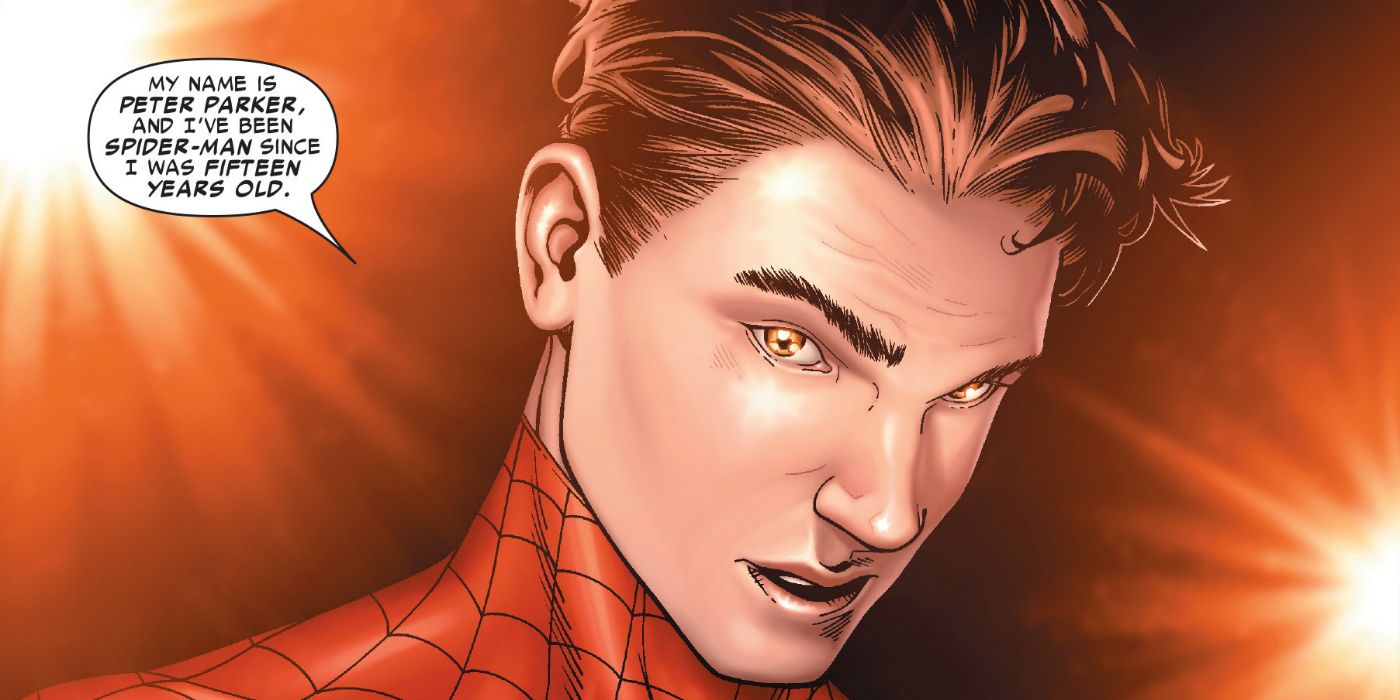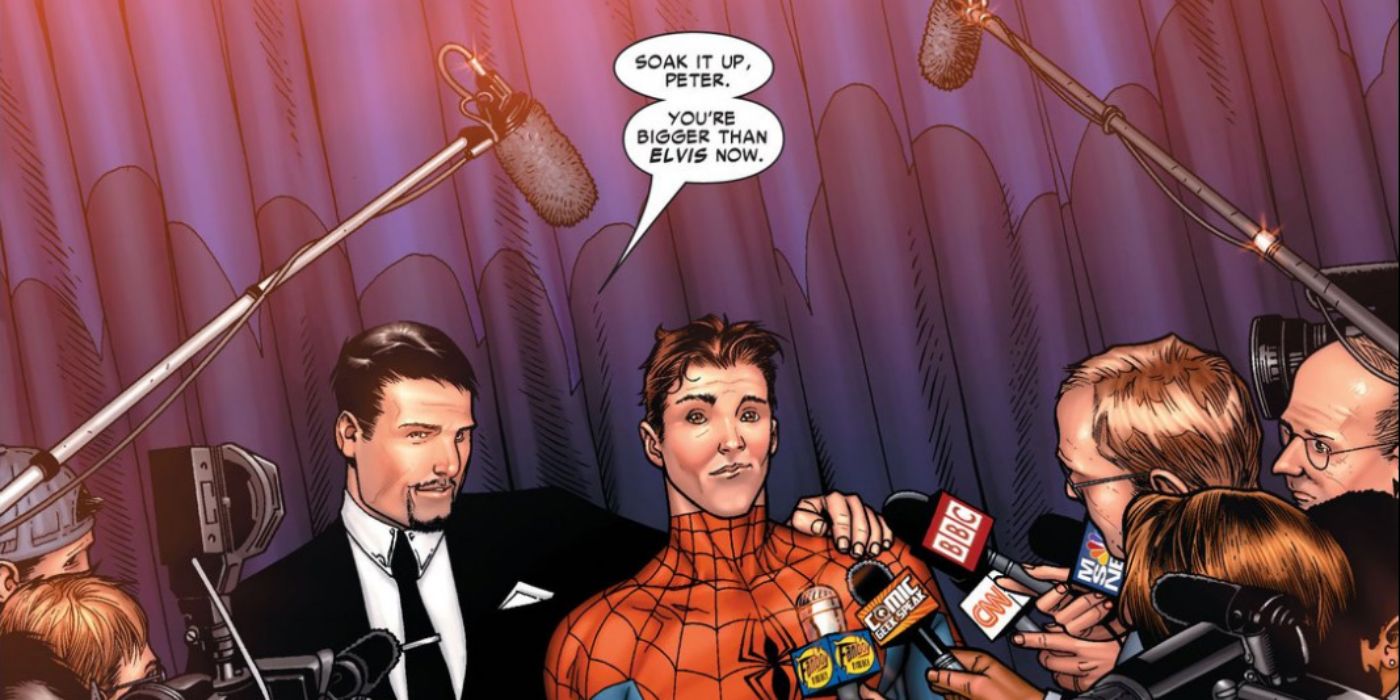When Stan Lee first pitched the concept of Spider-Man, Marvel publisher Martin Goodman insisted it wouldn't work. In his view, nobody was interested in teenage superheroes unless they were sidekicks (and besides, most people are terrified of spiders). Stan Lee persisted, but even legendary artist Jack Kirby couldn't get his head around Spider-Man, leaving that job to another artist who managed to understand what he was trying to achieve - Steve Ditko.
Looking back, it's hard to believe Spider-Man was ever controversial. He's become Marvel's most recognizable and merchandised hero, and made history in superhero cinema. Not bad for a spider-based kid hero, doomed to fail for both reasons. But Marvel's recent art book From Amazing to Spectacular collects a wide variety of interviews shedding light on the wall-crawler's success. In the process, revealing the reason why Spider-Man is so successful. According to many of Marvel's writers, it's his secret identity, not his powers.
Spider-Man's Secret Identity Is The Heart Of His Success
All the best Marvel writers and artists agree: the key isn't Spider-Man, but Peter Parker. As writer David Michelinie explains, "Here was a character who, unlike perfect heroes of the Superman type, was just a regular guy with regular problems - like me, and everyone else." He's consistently presented as a complex, flawed human being who's frequently down on his luck. Another famous writer, J.M. DeMatteis, adds that "The book may be called Spider-Man, but, mask on or off, it's all about Peter Parker."
Stan Lee deliberately designed the iconic Peter Parker to be relatable to his audience. At the time, Lee had become aware of a surge in teenage comic book readers, and he wanted to give them a character just like them - a superhero whose issues reflected their own. There's a sense in which Spider-Man's adventures are far more realistic and grounded than any other superhero, and in large part that's because he's always desperately attempting to strike a balance between his private and personal life. His victories as Spider-Man come at a terrible cost to his private life, and Peter Parker - that most responsible of characters - has developed a reputation among friends, employers, and even lovers as being flaky and unreliable. Writer Mark Millar remembers Stan Lee's advice:
Stan Lee said that when Peter was having an awful time Spider-Man should be the release, and the converse holds too. You thought you wanted him to get a break, both sides of his life to be perfect, but you really didn't. It was very clever and one of the many great things about secret identities.
It's not hard to see that pattern reflected in the comics. Time and again Peter Parker comes to the brink of officially retiring as Spider-Man (the most iconic promising "Spider-Man No More!" with his costume tossed in the trash), but his sense of responsibility always brings him back. When he takes the risk of opening up to someone about his secret identity, it always turns out badly. When the line between his personal life and his superheroism blurs, friends and lovers get caught in the crossfire.
Did Marvel Gamble With The Secret Identity?
But if the secret identity is so central to Spider-Man's success, why did Marvel Comics gamble with it in 2006's Civil War event? This story saw the superhero community divided over whether or not to register with the government, essentially giving up their secret identities. Spider-Man became the most prominent superhero to register on the side of Tony Stark, and he unmasked dramatically in a live press conference. Behind the scenes, the simple fact is Spider-Man was probably the only prominent superhero Marvel had in play at the times who could do this; most of the Avengers had never bothered with secret identities, while Daredevil's had been outed.
But the truth, it seems, is that Marvel made that decision knowing they'd already prepared their exit strategy. "I don't think this has ever been made public," Millar reflected. "I remember [editor] Tom Brevoort suggesting Spidey reveal his identity for the simple reason that his continuity was about to get a magical reboot a year later." The truth, it seems, is that Marvel made the decision to have Peter Parker give up his secret identity because they knew it wouldn't last. It was a gimmick, intended to drive Spider-Man's attempts to regain privacy ahead of a magic-wand rewrite... which ended up being a complete mess. The solutions was the controversial "Spider-Man: One More Day" story, in which Peter struck a deal with the devil in order to rewrite history and save Aunt May's life.
Have Marvel Studios Made A Big Mistake?
In light of all these comments, it seems Marvel Studios is taking a huge risk. The final scenes of Spider-Man: Far From Home end with Peter Parker's secret identity being revealed to the world by Mysterio. It delivers Marvel's best post-credits twist in the entire MCU, but it's entirely possible that, like the comics themselves, Marvel did this with a pre-prepared exit strategy. If so, though, the experience of "One More Day" should serve as a serious warning. That was too obvious a gimmick, too heavy-handed a reset, and as a result it remains controversial to this day. In the case of Spider-Man: Far From Home, the pressure is even greater given the prominence of the post-credits scene. Marvel has gotten away with reversing course on some of these post-credits scenes before... but this one simply feels too important.
On the face of it, the MCU's Spider-Man is about to part company with the comics - and, indeed, with one of the most important reasons for his appeal to fans throughout the decades. That's an unusually bold move on Marvel's part, and it makes their version of Spider-Man absolutely unique. Only time will tell if it pays off in Spider-Man: Homecoming 3.




